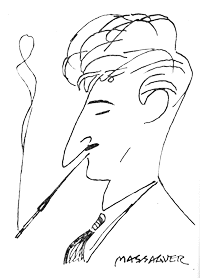4.1.1.8.1 Literary currents and confluences in the poetic work of José Zacarías Tallet (1893 – 1989)

Tallet’s poetic work is situated precisely at that moment of rupture with modernism and opening towards new spaces, although they appear somewhat diluted under the common nominative of avant-garde, in a certain way the unknown that was shaking poetry in the formal aspect but that would not find a defined content if not in the strands that derived from it, say pure, negrista and social poetry.
The disarticulation proposed by the avant-garde also included romantic reminiscences, which are latent in these verses of metapoetic implications, belonging to his poem “Possibilities”, incidentally, also testimony to the contradictions and fractures that the division of society into classes provokes in man, in the context of Cuba before 1959:
“You don’t know that I love you”
and perhaps you will never suspect it,
Although you are for me the stars, the moonlight,
the dawn, the dusk and everything in between
that the romantics of the good old days loved
and is no longer used…
It’s a matter of categories
and you are
several steps higher…
And I won’t be able to go up and you won’t want to go down
(or they won’t let you get off).”
“The Sterile Seed” was called “a bunch” by its own author, perhaps due to its thematic diversity or this confluence of currents, in which, even in the break with modernism, certain signs of the aesthetics of Rubén Darío and other modernists can be appreciated.
The predominant tone is prosaic, with a desacralization of themes, a confessional attitude that lacks much traction with the poetics current at the time in terms of authenticity, even with a tendency toward narrative; and this constitutes perhaps the most striking aspect of his poetry, which brings it closer to the contemporary reader and the conversational tone of later periods.
His poetry, although it cannot be described as purely social, did occasionally adopt a tone of denunciation, as in the aforementioned poem, regarding class divisions. Not entirely detached from circumstances in terms of either aesthetic or ideological currents, he did leave behind these verses, precursors to “Proclamation,” in which he attempts to break his own conditioning by making it conscious. He offers at least two interpretations: the purely aesthetic one of surpassing the romantic self, and the one of a social nature:
“Mean and sad people,
that at the same time you know about the shameful and unknown rebellions
and of cowardly and heroic renunciations,
listen to the voice of one who speaks for you.
I am the poet of a dying caste,
which launches its last gasps, drowned by the imperative of history;
of a caste of small, nonconformist and skeptical men,
of the comfortable philosophers of “when in doubt, abstain”,
that they sense at dawn after the darkness of the night,
but they lack the faith to watch until the end of the night.
(Don’t you hear the dull thunder of our impotence?)
I am one of the last who say,
tragically, “I”,
convinced at the same time that the saint
and tomorrow’s sign has to be “we”
He also cultivated the Negrista line, with two poems that perhaps reveal this same need for integration into “us”, of all the layers of society that were part of the immediacy of his walks, with a sensual revelry that is perhaps proof of intimate transculturation, and a less ironic trail, now as a subject immersed in the spectacle he contemplates, their titles are “Negro Ripiera” and “La Rumba”, a fragment of the second serves as an example:
“Black Tomasa with a lascivious gesture
lifts the hip, raises the head,
and raise your arms, clasp your hands,
On them rests the ebony neck
and lewdly offers her rotund breasts
that swings from right to left
“They dazzle Chepe Cachón.”








